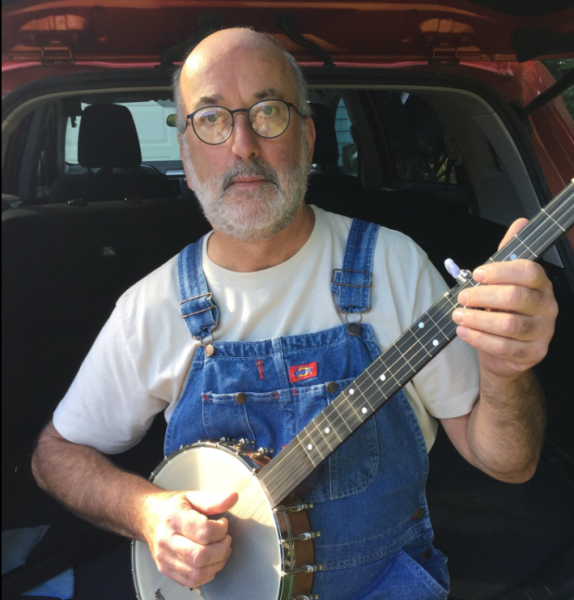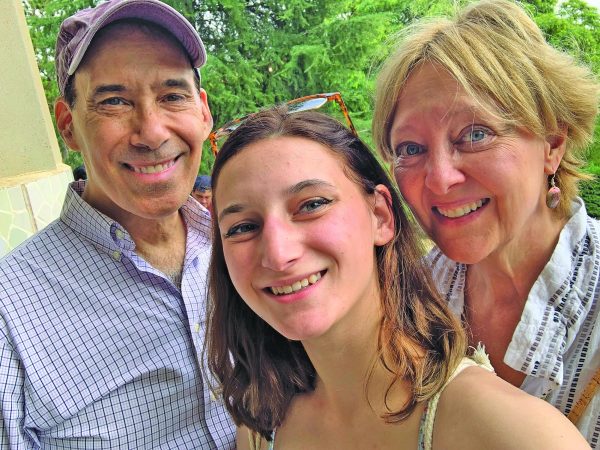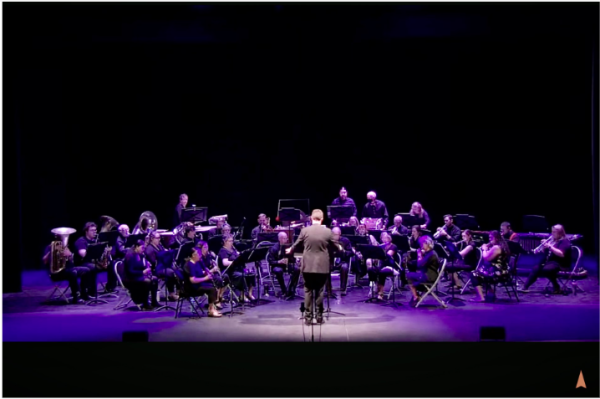No butts about it: Smoking ban coming
Smokers on the Johnson State campus might want to consider quitting tobacco soon. That is part of the goal, after all, of the smoking ban that will take effect after commencement this year.
There will be established smoking zones away from the quad, either near or on the other side of the road that encircles the main area of campus, but these designated smoking areas will only last until July of 2019, when a total ban will take effect. After that point, no one will be allowed to smoke on any VSC property at all.
On Jan. 18, Interim Dean of Students Michele Whitmore, who is part of the JSC Tobacco-Free Implementation Team, sent an email to all faculty, staff and students, informing the community of this upcoming change in policy. “Quite honestly, we’re behind the boat on this,” Whitmore said in a Basement Medicine interview. “I think upwards of 1700, if not more, colleges throughout the United States are already smoke or tobacco free. It’s time for us to step up.”
While a survey from the SGA last spring suggested most students, faculty and staff support the initiative, there are mixed views. Assistant Registrar Tammy Goss said, “I understand why. As a former smoker, when I walk out of a building and have to walk through a cloud of smoke, it kind of aggravates me. On the flip side of that, again as a former smoker, the thought of being pushed off to some corner of campus in order to have a cigarette I don’t think is right. It’s kind of a catch-22.”
As for the total ban starting in 2019, she had other thoughts: “I don’t think you can tell people they can’t smoke somewhere. I understand having designated spaces to smoke, but to tell somebody that you can’t smoke on campus seems a bit extreme.”
Shavonna Bent, the SGA president, also understands both sides. She said that she didn’t like having to follow people who are smoking to class.
“I also am a really big proponent of not infringing on anybody’s rights, so I wish there was a way to have more of a balance between a total ban and a free-for-all, not that our campus is a free-for-all,” she said.
Leighanne Merchant, a sophomore majoring in business, supports the ban, citing cleaner air on campus as one reason she feels that way. “I don’t think people are going to stop smoking because of the ban, but I think around campus, it’ll be better,” she said. “Other places in the area, like Burlington, on Church Street, have banned smoking, except in specific areas. If towns can do it, I don’t see why the college can’t.”
Not everyone sees it that way, however. Matthew Amenta, a junior with a major in outdoor education, doesn’t agree with the policy. He said that it feels like an attack on smokers. “We already feel excluded,” he said. “It’s not a fashionable thing anymore; we don’t live in the ‘50s, when it was cool to smoke.”
One of the arguments for the ban is that it encourages smokers to quit and discourages students from picking up the habit in the first place. “The hope is that over the next year and a half we start shifting the culture,” Whitmore said, “and our community members will become acclimated to moving to the smoke-free zones. Then the hope is that might reduce the use, if it’s not as convenient, and cause community members to think about whether they want to engage in smoking or not.”
She cited Lyndon as a campus that is already smoke free, and the ban there seems to be going well.
She said no one even tries to smoke on campus, and if someone did, witnesses would address it. “[Smoking tobacco] is a legal, conscious decision that we’re able to make,” Amenta said in response to these arguments. “I have no problem with the smoking areas. I get it. People don’t want cigarette smoke blown in their face. I feel that. But to outright ban it – how often does that work with anything the college bans?”
The decision has already been made, however people feel about it, but Whitmore encourages feedback.
So far, she hasn’t heard much.
After the survey from last spring, it appeared the majority of the community supported the initiative. “I haven’t heard otherwise,” she said. “I put out a couple communications to our community, did an earlier interview with Ian from Basement Medicine last fall, just asking students to step up, either come see me, send me an email, participate in our meetings, and play devil’s advocate, or tell us why this isn’t the right move. I haven’t heard from anyone.”
“The decision is out of our hands,” she added. “It’s going to happen, but I would like the students to be with us in making this transition as effective and efficient as possible for all of us. I welcome the opportunity for students to jump in and join me.” The decision was made with some urging from the chancellor’s office, which Whitmore appreciated. “The tobacco free topic has been on the table at the college for 15 years, if not longer,” she said. “We would have gotten there, but I appreciate the gentle push by our chancellor’s office, saying, ‘You know what? We’ve been talking about this 15-plus years. It’s time to do it.’ Having that support, not only from the chancellor’s office, but also knowing that the other Vermont state colleges are going through the same process, gives us more energy to move forward and make this transition for our campus community.”
Another push came from the Vermont Department of Health. The commissioner, Dr. Henry Chen, gave a presentation to the board of trustees last April, and it appears to have had an impact.
Whitmore saw the presentation. “[Chen] was saying himself that it was time for Vermont to take that step and provide a healthier environment for our college communities,” she said. “One of the biggest incentives to create a tobacco-free environment is because our college age students, between 18 and 25, the vast majority of them start smoking when they enter college, so we’re trying to stop that trend to provide a healthier future for all of our generations.”
VSC Chancellor Jeb Spaulding said he understands that each college in the VSC is at a different stage in the process of implementing the new policy, which is why the date for the total ban is set for 2019. He also said that he and the board of trustees felt an obligation to protect the health of the VSC community after listening to some of the facts of Chen’s presentation. “Some of those facts are that tobacco use causes about a half million deaths a year in this country, that even second hand smoke is dangerous, that very often the addiction to tobacco products takes place in the college years, and that similar policies adopted at other colleges and universities have meaningfully lowered the rates of tobacco usage,” Spaulding said.
However one feels about this policy, Whitmore requests involvement from the community. “Let us know,” she said. “If our community members are concerned about this transition to a tobacco-free environment, share with us what those concerns are so that we can address them. If we don’t know, we’re not able to fully address them in the end. This is a community for everybody.”








